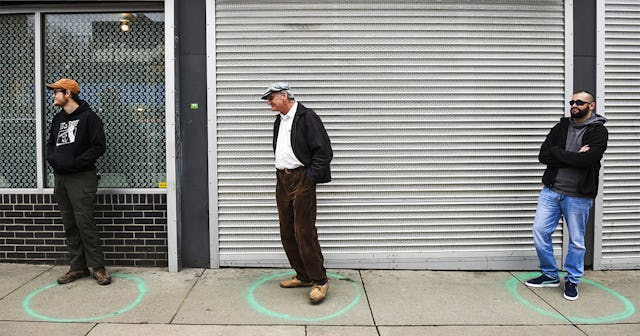Harvard Researchers Say We May Need Social Distancing Until 2022

Harvard scientists are warning that after lockdowns are lifted, the coronavirus could very well return
A group of Harvard disease researchers released their findings on the coronavirus this week, and it’s bad news for anyone who’s already over social distancing: They say the world may need to practice off-and-on social distancing for years, potentially into 2022. With talks already happening about lifting lockdown restrictions, and people getting excited about life going back to normal, this is potentially a serious blow. This could be our new normal — for a very long time.
The Harvard group’s research showed how very little we actually know about the coronavirus, and its effect on populations. For example, we don’t know for sure if having had the virus grants a person immunity from contracting it again, or for how long if it does. We don’t know about lasting health effects that might reveal themselves weeks, months, or years after after suffering from the virus. And without widespread virus and antibody testing, we have no idea how many people have actually already been effected.
The Harvard scientists used computer models to show some of the ways the pandemic might continue to play out. One option is that the entire world adheres to strict social distancing, and scientists and epidemiologists use contact tracing to completely stamp out outbreaks of the virus until it’s eradicated. Considering that even some U.S. states still refuse to issue stay-at-home orders, worldwide cooperation on that scale seems extremely unlikely.
So that leaves us with a few other possibilities, the Harvard team said. If we practice social distancing for only 20 weeks, their model shows the epidemic will peak at just as high a level as if we had taken no measures at all. That means that to save any lives from the coronavirus, five months of social distancing may not be enough.
What the Harvard team says is most likely is on-and-off social distancing for years that allows people to be exposed to the virus, but in low enough numbers that healthcare systems can effectively treat them. In that way, we gradually build up humanity’s immunity to COVID-19 — at least until a vaccine becomes available.
The team of Harvard scientists didn’t endorse one path over the others, but we’ve already seen how easily the coronavirus can overtake communities and crush hospital systems. Social distancing (at least in phases) might just be the reality we have to accept for a while to help save lives.
This article was originally published on